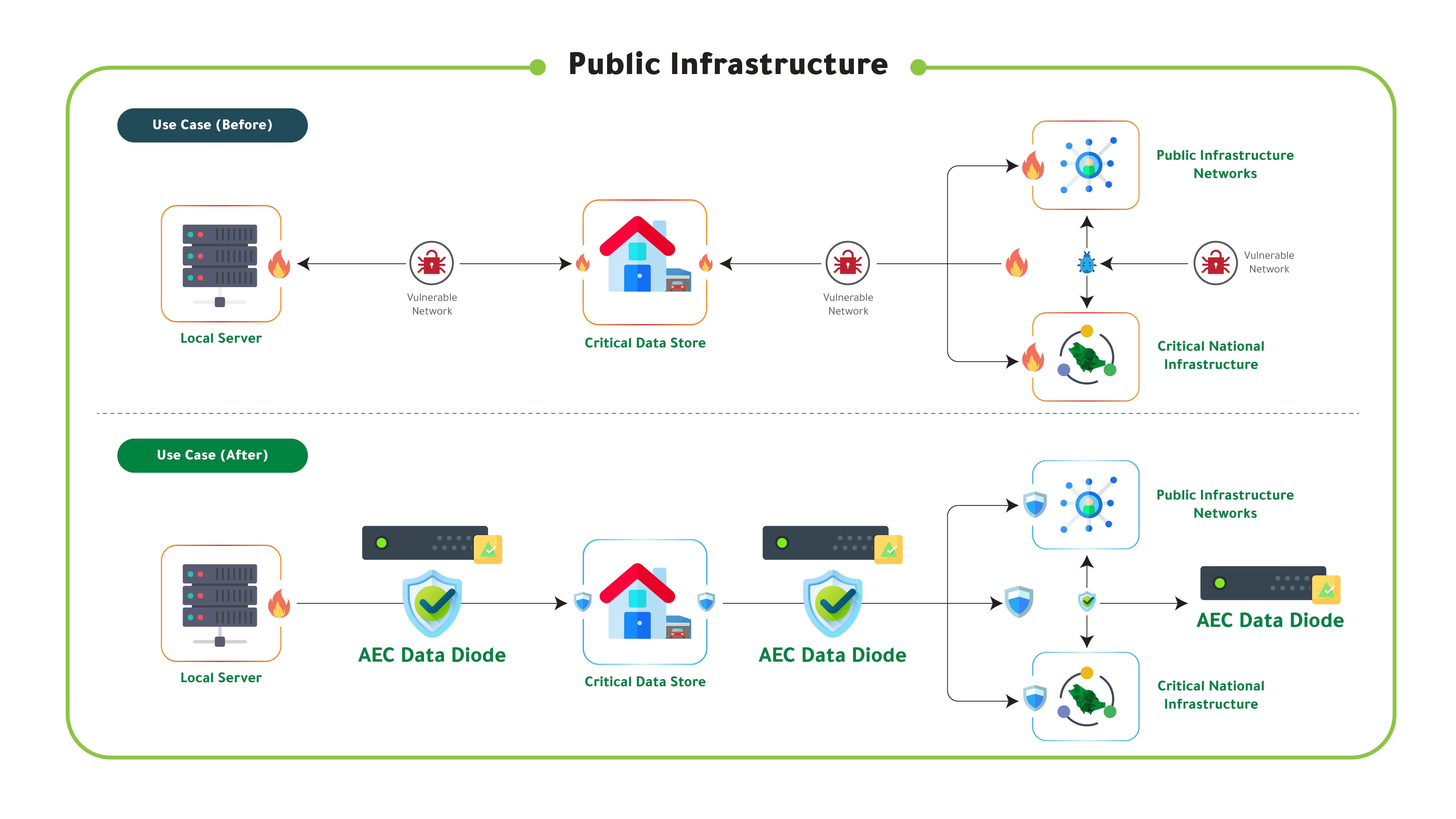Challenge
Secure public sector undertakings from external attacks and retain the integrity of state activities.
Threat Actors
Industrial Case for Data Security
Build a strong net for protective monitoring across public activities that involve collection of public data and creation of a centralized data aggregate.
Industry Requirement
Protect sensitive personal and business information that can facilitate critical operations and build resilient national infrastructure.
AEC Data Diode Solution
